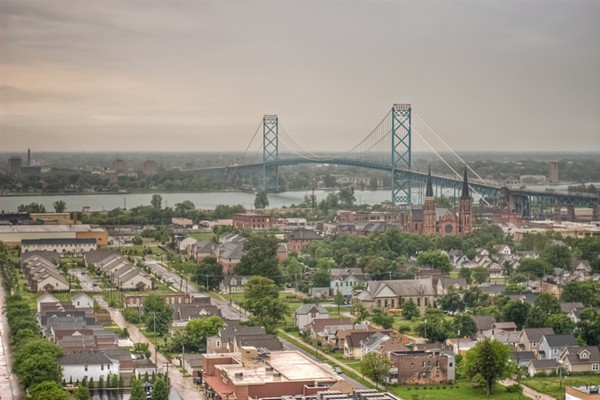The city of Detroit is rectifying its failure to properly administer federal funding for a program designed to support entrepreneurs by renovating eight lower-income apartment buildings and keeping the units affordable.
The $6.1 million project is part of an agreement with the U.S. Department of Housing and Urban Development (HUD), which found that the city didn’t comply with spending standards when managing Motor City Match, a program designed to support small businesses. According to the investigation, the city did not maintain sufficient oversight of its spending and failed to adequately keep records, among other things.
To resolve the problems, the city is using $6.1 million of its own general fund money to renovate six lower-income apartment buildings in the Hubbard Farms and Mexicantown neighborhoods. The additional two buildings still need city council approval.
Detroiters were at risk of losing nearly 400 affordable housing units if the city didn’t spend the money. Now the lower-income residents will not only maintain their homes, but their apartments will be renovated.
The owners of the buildings agreed to maintain the affordable rents for another 15 to 25 years in exchange for the city financing the renovations.
“That level of investment is the reason Detroit is not experiencing tent cities and a homelessness crisis like some other large cities,” Julie Schneider, director of the city’s Housing and Revitalization Department, said in a statement Friday. “It is going to take many more years of sustained investment into affordable housing to meet the need and demand in the city and this $6.1 million investment will be an important part of that.”
Launched in 2015, Motor City Match was intended to provide federally funded cash grants and additional resources to assist small business startups. Much of the funding came from federal block grants.
Motor City Match no longer uses community block grants and instead relies on the city’s general fund budget and federal pandemic funds.
In January 2021, an 18-month investigation by Detroit’s Office of Inspector General alleged that Motor City Match was plagued by excessive spending, poor oversight, inadequate payment controls, and a failure rate of nearly 77% among assisted businesses.
“While waste is open to interpretation, it is clear that more money was spent on advertising, implementing and administering the programs than on direct assistance to the businesses,” the report stated.
The report came about two years after HUD announced its concerns with the program.
Since its inception, Motor City Match has helped 168 businesses open. An additional 104 businesses are under construction, according to the city. Of those businesses, 85% are minority-owned, and 70% are women-owned.
The program has received a total of $102.7 million in investments so far.
“We appreciate HUD’s partnership in working through this very complex process,” Schneider said. “This is a fair resolution and we are pleased to finally be able to put the matter to rest. As a result, we will be supporting the preservation of badly needed affordable housing in a way HUD fully supports and that protects our most vulnerable longtime residents.”
As the prices of housing in Detroit continue to increase, many lower-income residents are having trouble finding affordable options.
Acknowledging the rising demand for affordable housing, Mayor Mike Duggan’s administration has significantly increased the number of lower-income options. But it’s nowhere near enough to meet the demand, and many Detroiters are finding it difficult to buy a home in the city.


